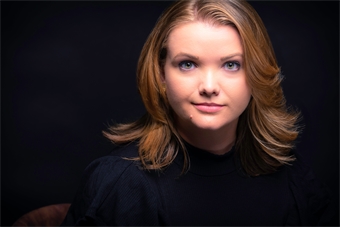From the Women’s Prize Archives.
Today marks the beginning of the second week of the BBC Woman’s Hour coverage of our 20th anniversary. Ahead of this morning’s interview with Bettany Hughes about 2011 winner The Tiger’s Wife, we caught up with Téa Obreht, the author of this captivating, magical realist book.
You were the youngest winner ever of the BWPFF prize back in 2011— how did it feel to win at only 25?
Truthfully, the whole experience surrounding the evening, as well as the months that followed, were such an incredible, dizzying, surreal adventure that I believe it would have felt the same if I had been a hundred.
Your writing has been compared to Gabriel Garcia Marquez, among others – where do you think your interest in magical realism comes from?
I think it’s accurate to say that most people’s tendencies as writers are reflective of their tastes as readers. I actually fell in love with Gabriel Garcia Marquez’s work when I was very young, long before I was aware of magical realism, or its defining cultural and historical parameters. I think Garcia Marquez—and, though he’s from a very different tradition, Mikhail Bulgakov, whom I also love—always seemed to be circling around the issues that felt the most culturally resonant to me based on the kind of narrative I grew up with: the intersection of truth and myth; collective versus individual memory, and the general unreliability of both; the tension between individual, sometimes selfish and cruel impulse and the requirements imposed by a functioning society.
Did you have to do any particular research to write the book?
When I first started writing, a number of mentors told me that the first novel I wrote would probably draw on elements of my early life, whether I wanted it to or not. At the time, I wasn’t especially interested in reflecting on my family’s narrative heritage or my upbringing, and preferred to focus on stories as far afield from my personal experience as possible. Even though The Tiger’s Wife was in no way autobiographical, my mentors’ predictions were essentially accurate: I ended up drawing on the things closest to me, the emotional and psychological struggle following my grandfather’s death; the impulse to eulogize not just the departed, but the formerly intact life that ends when a loved one is gone. Several years into writing The Tiger’s Wife, I also went vampire hunting for Harper’s, which proved invaluable.
Did you ever want to be anything but a writer?
I’ve always loved reading about the natural world, and I had a brief dalliance with the notion of studying zoology, but knew that any other passion would play second fiddle to writing. I have, however, recently become very nostalgic for now-missed opportunities that might have presented themselves if I had tackled science, as well as literature, head-on. Every universe of pursuits has its own lens, its own vocabulary, its own delightful insularity, and I sometimes wish I had taken the time to develop fluency in two radically different ways of seeing and thinking.
Are there any authors writing today that you find particularly inspiring?
I think Karen Russell is one of the most remarkable minds and voices working today—her prose never ceases to leave me breathless. I love what Aleksander Hemon and Kevin Barry do with language; how Marlon James and Elizabeth Strout world-build. I am also absolutely floored by Lucia Berlin, about whose work I (along with probably 90% of today’s reading public) knew nothing until A Manual for Cleaning Women was published this spring, eleven years after her death and decades after she first made her mark on the world with some of the most tense, sinewy, remarkable short stories that will ever consume you.
What are you working on now?
A novel set in 1880s Wyoming.



